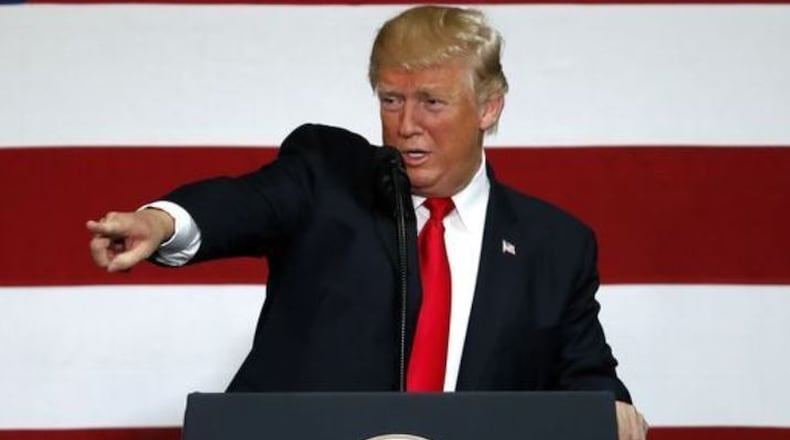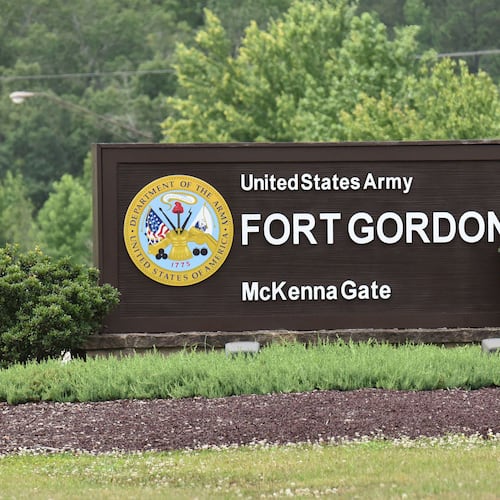PolitiFact last week looked at: web post claims that Mike Pence opposed funding for aid to Hurricane Katrina victims; Attorney General Jeff Sessions' blaming Barack Obama's DACA policy for a wave of young border crossers from Central America; and President Donald Trump's linking of the business tax cut in 1986 to improvements in the economy afterward. Summaries of our findings are here. Full versions can be found at www.politifact.com.
Video shows Mike Pence quoting the Bible as justification for “Congress not to fund Katrina relief effort.”
— Bloggers on Tuesday, Aug. 29, 2017 in internet posts
Left-leaning bloggers used the aftermath of Hurricane Harvey to attack Vice President Mike Pence, saying he opposed relief for Hurricane Katrina while he was a congressman. One such example we saw called Pence out for citing the Bible to justify his opposition.
While the tweet said Pence urged Congress not to approve Katrina aid, the video that accompanied it — and Pence's full remarks — show the opposite. Pence did not oppose any aid for Katrina victims. He said in his remarks that Congress should pay for relief efforts. Pence joined the vast majority of lawmakers who voted later that day in favor of a $51.8 billion relief package, which passed 410-11. The bill then passed the Senate 97-0 and was signed into law by President George W. Bush.
Our ruling
Pence said Katrina relief should pass, but Congress should look to cut costs elsewhere. He did not hold the aid bill hostage. Critics are misrepresenting Pence's comments, which are plain just from watching the video. We rate the statement Pants on Fire.
President Barack Obama’s policy known as DACA “contributed to a surge of minors at the southern border.”
— Attorney General Jeff Sessions on Tuesday, Sept. 5, 2017 in remarks at the Justice Department
A surge in unaccompanied minors at the southern U.S. border spiked in 2014.
Under DACA, undocumented immigrants who had been brought to the United States before turning 16 could apply for a renewable status that protected them from deportation as long as they met several requirements. They needed to be in school, have finished high school or be an honorably discharged veteran. They had to be younger than 31 by June 15, 2012. They had to have no significant criminal record. And they had to have lived in the United States continuously since June 15, 2007.
This residency requirement meant that none of the unaccompanied minors showing up at the southern border in 2014 would have qualified for DACA.
Is it conceivable that people in Central America might have heard about DACA and used it to reinforce a perception that the United States was growing more welcoming to immigrants, and that they should try to send their unaccompanied children here? Yes. But the DACA policy itself would have done Central American migrants no good once they got to the border.
Our ruling
Since the DACA policy itself didn't address the unaccompanied Central American minors at all, the only way it could have had any effect was through mistaken understandings among potential migrants in Central America about what the program did and didn't do. While there is evidence that such mistaken ideas did exist, the data show that the upticks at the southern border were already under way by the time DACA was announced, and that trend line didn't change significantly after the announcement. We rate the claim Mostly False
“In 1986, President Ronald Reagan” cut the business tax rate to 34 percent and “it worked — our economy boomed, the middle class thrived and median family income increased.”
— President Donald Trump on Sunday, Sept. 3, 2017 in an op-ed in the Milwaukee Journal Sentinel
Some economists say Reagan’s reduction in the corporate tax rate helped boost the economy. But seven experts we spoke to were unanimous in saying a single tax cut can’t be credited for dramatic gains in an economy that is affected by a host of taxes, as well as many factors not related to taxes, such as demographics and trade policies.
Our rating
Some economists say the corporate rate reduction did help lead to economic growth and higher income. But it wasn't necessarily more important than a cut from 50 percent to 28 percent in the top individual income tax rate that was part of the same 1986 package that included other tax changes, as well. Many other factors beyond tax cuts — demographics, immigration, trade policy and more — bear on the economy. Trump's statement contains only an element of truth — our definition of Mostly False.
About the Author
Keep Reading
The Latest
Featured


